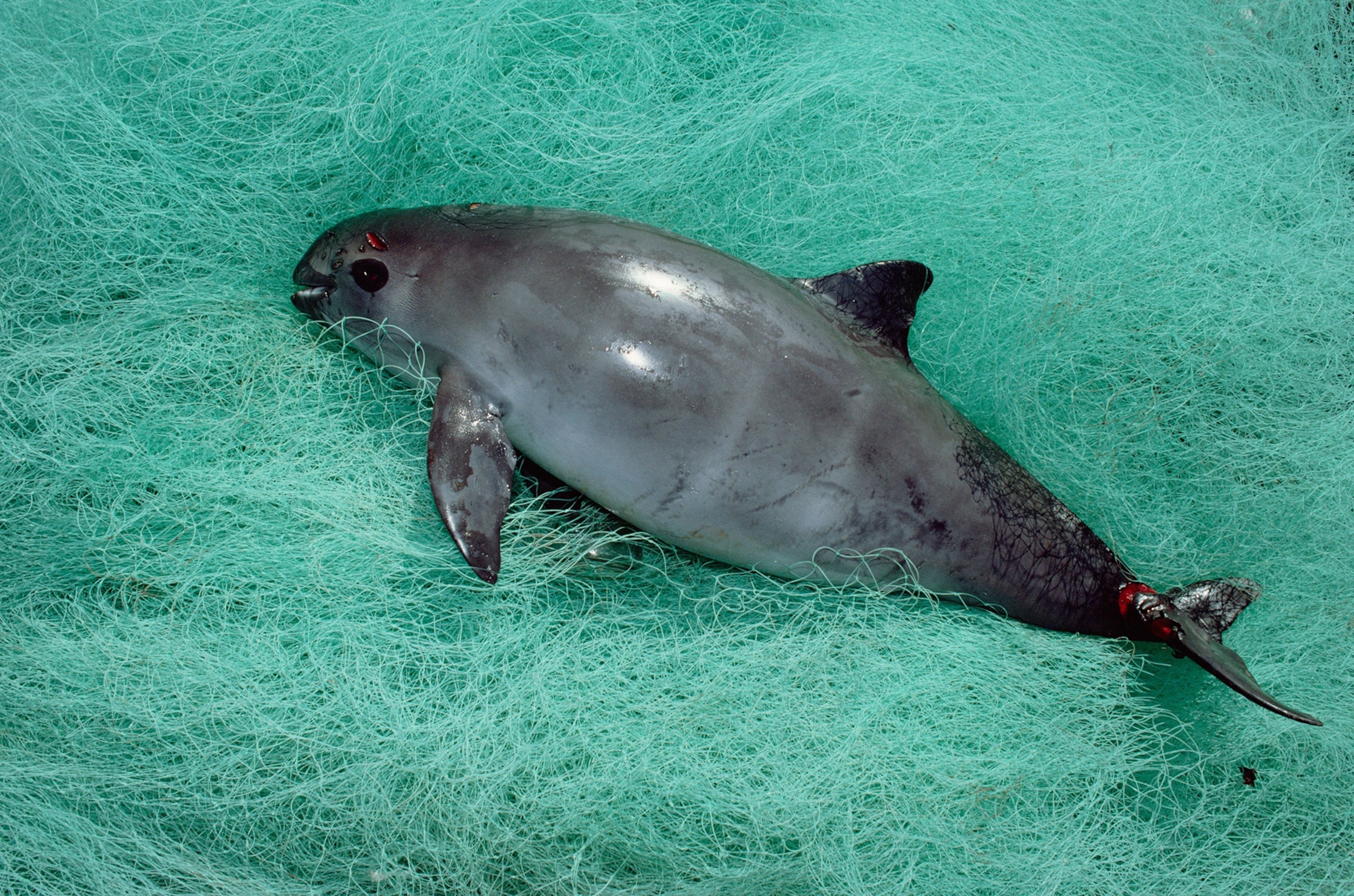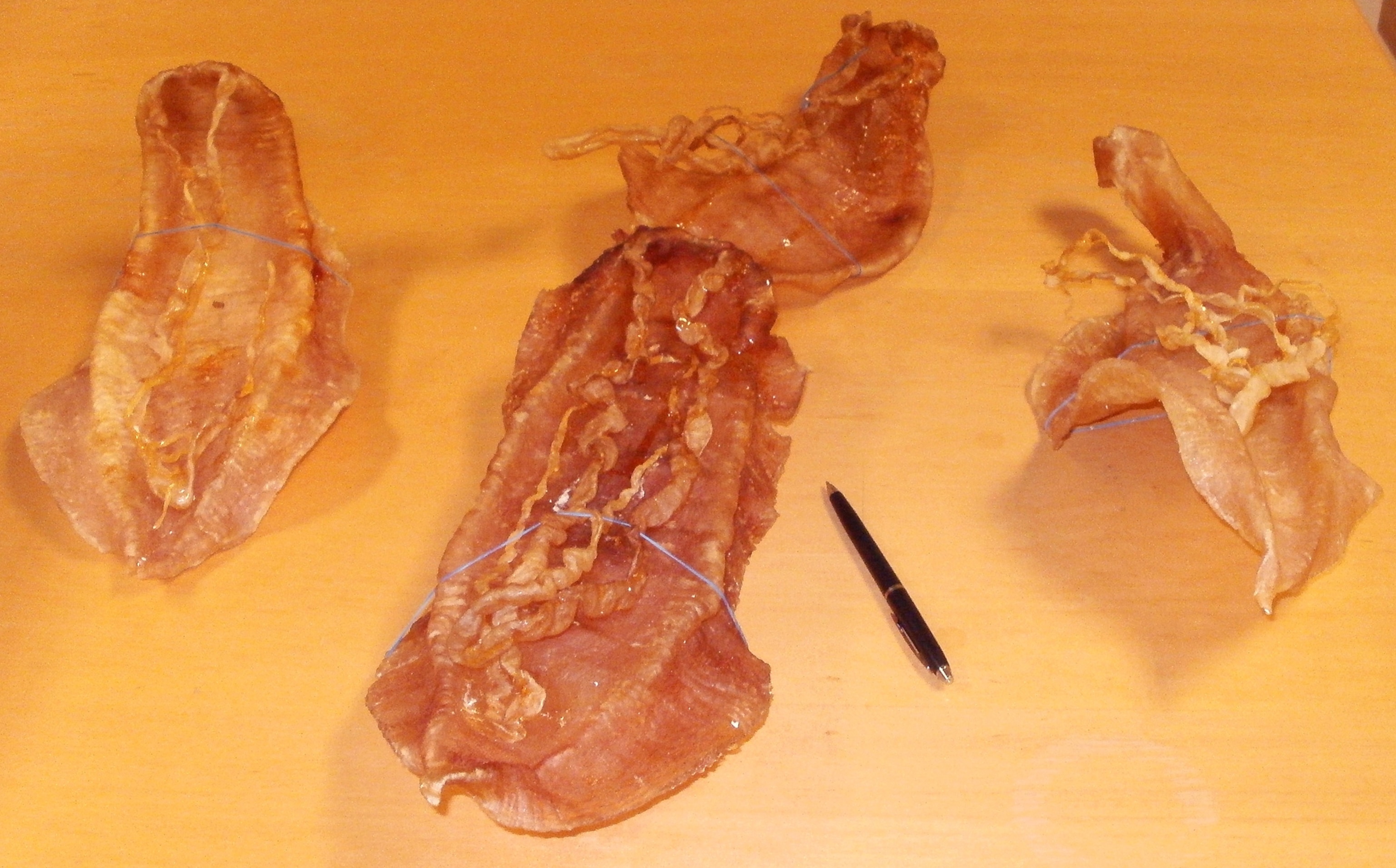
Demand for Fish Bladder May Wipe Out World's Rarest Ocean Mammal
The swim bladder of a fish called the totoaba is prized in China, but the way the fish is caught ends up drowning nearly extinct porpoises.
Just last week, a friend at the United States National Oceanic and Atmospheric Administration (NOAA) emailed me to ask if I’ve ever written about the trafficking of totoaba swim bladders, adding that she’s been working on vaquita conservation in the Gulf of California.
Totoaba? Vaquitas? These were animals that definitely hadn’t been on my radar. Totoabas are large, rare fish found only in the Gulf of California, and it turns out that their swim bladders—the organ that helps them float—is in high demand in China for soups and medicines. Demand is so high that a Mexican fisherman can make more than a month’s salary if he sells just one to a trafficker (to say nothing of how much that trafficker makes when he sells it to a customer).
And then there’s the vaquita. It’s an adorable little porpoise on the verge of extinction. That’s because vaquitas are getting caught in nets used illegally to catch totoaba. National Geographic actually wrote about quest to save them in 2014.
Over at NOAA, they’ve been studying how to keep these species alive. But it turns out totoaba and vaquitas aren’t just on NOAA’s mind. Today the Environmental Investigation Agency, a UK-based NGO, released a briefing called “Dual Extinction: The illegal trade in the endangered totoaba and its impact on the critically endangered vaquita.”

No one’s sure how many totoaba are left, but it’s clear they’re endangered. A century ago they were fished heavily to meet demand for swim bladders in both China and the U.S. But their population dropped, and fishing them was banned in 1975.
Totoaba are now at risk from illegal fishing. Nor does it help that the Colorado River, where they go to spawn, has become so salty because of water diversion that breeding is hard for them.
Poachers use gill nets to catch the fish, which can grown more than six feet long and weigh more than 200 pounds. Gill nets are literally walls of netting dropped down into the ocean to trap fish. But they also trap all kinds of other marine life, including non-target fish, dolphins, sea turtles—and vaquitas.
The vaquita is the smallest member of the dolphin, whale, and porpoise family, growing up to five feet and 120 pounds. Fewer than 100 are left, making them the most endangered marine mammal in the world. Scientists have long agreed that the only way to save them is to totally eliminate gill net fishing in their habitat, the waters between Baja California and mainland Mexico.
“The vaquita’s only hope for survival is that gill nets are permanently removed from its entire range in the Gulf of California,” said EIA researcher Clare Perry, echoing NOAA’s recommendation. Last April, the Mexican government expanded its ban on gill net fishing in the gulf to try to save the species.
Fishermen in the area, who are now no longer allowed to use gill nets for shrimp and other fish because of the ban, are being compensated for loss of income. But gill net poaching continues.
Like shark fin, swim bladders are an ingrained part of traditional Chinese culture, used to signal wealth and opulence. They’re also believed to have medicinal properties. A similar species, the Chinese bahaba, was eaten to near-extinction several years ago, which led to the current totoaba poaching crisis in the upper Gulf of California. Fisherman have been known to get thousands of dollars for a totoaba bladder, which only multiplies in price by the time it’s sold to a consumer in China.
The Environmental Investigation Agency found totoaba bladders, sometimes called “maw,” openly for sale in markets in Guangzhou, China, and Hong Kong. Most sellers knew it was illegal. Online, researchers found traffickers sharing tips about the best routes to smuggle them in.
“There’s a real lack of enforcement in the main totoaba markets of Hong Kong and southern China,” Perry said. As long as demand continues and enforcement in China remains lax, vaquitas will continue to drown in illegal nets off the Mexican coast.
This story was produced by National Geographic’s Special Investigations Unit, which focuses on wildlife crime and is made possible by grants from the BAND Foundation and the Woodtiger Fund. Read more stories from the SIU on Wildlife Watch. Send tips, feedback, and story ideas to ngwildlife@natgeo.com.